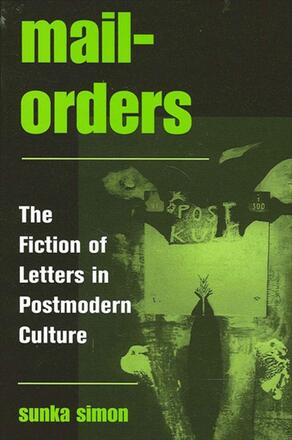
Mail-Orders
The Fiction of Letters in Postmodern Culture
Alternative formats available from:
Explores contemporary uses of letters and letter writing—including electronic mail—in literature, film, and art.
Description
While the advent and structure of electronic mail has been discussed in web caucuses, newspapers, hypertext theory, and communication theory, it has not yet been considered in conjunction with epistolary scenarios in film, art, and literature. To address this gap, Mail-Orders explores the status of the epistolary form at the end of the twentieth century and its connections to feminist criticism, literary theory, and postmodernism. One of the first works to consider electronic mail in relation to the history of epistolary fiction, Mail-Orders concerns itself with individual letters, as well as fiction written in letter form, and widens the debate on the often postulated "death of letters" by considering the epistolary connections between the eighteenth and twentieth centuries' systems of communication and representation.
Sunka Simon is Assistant Professor of Modern Languages and Literatures at Swarthmore College.
Reviews
"Significant and relevant to cultural studies, literary studies, and film studies, the epistolary form has played a central role in philosophy and literature since the Renaissance, and, as Simon demonstrates, the letter has enjoyed a renewed vogue since the 1970s and promises to play a central role in our evolving cyber-culture. " — Susan Cocalis, University of Massachusetts, Amherst
"Intellectually ambitious and enterprising, Simon's Mail-Orders never loses sight of its addressees. A thoughtful and thought-provoking invitation to its readers to rethink questions of literary genre, gender, art, and modes of communication in a new light, this book 'delivers. '" — Christian Rogowski, Amherst College
"While the topic of letters and letter-writing, including their theoretical reflection, is not new, Simon's approach is unique and most refreshing, and reveals a broad knowledge of the subject, including its historical and contemporary critical discourse. " — Chris Lorey, University of New Brunswick